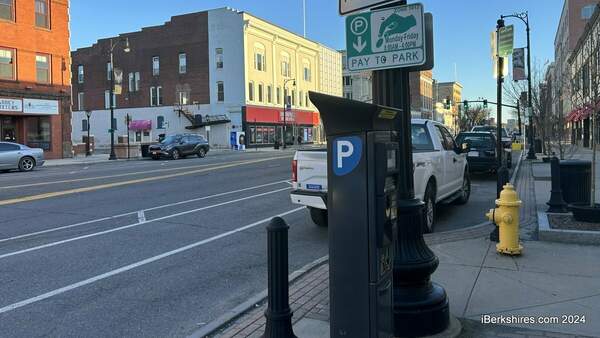State Senate Passes Bill Protecting Reproductive and Gender-Affirming Health Care
BOSTON, Mass. – The Massachusetts State Senate on Wednesday unanimously passed a bipartisan bill protecting providers, residents, and visitors to the Commonwealth who engage in legally-protected reproductive and gender-affirming health care.
An Act expanding protections for reproductive and gender-affirming care includes provisions preventing the Commonwealth’s cooperation with ‘bounty-style’ anti-abortion and anti-gender-affirming care laws in other states, mandates health insurance coverage for abortion and abortion-related care with no cost-sharing, ensures access to emergency contraception, and provides confidentiality to providers of reproductive and gender-affirming care.
"At a moment with so much uncertainty at the national level, we must be clear about protections here in Massachusetts," said state Sen. Adam Hinds.
Under the legislation, physicians, nurses, physician assistants, pharmacists, psychologists, genetic counselors and social workers are insulated from legal action in Massachusetts courts as a result of providing health care services which are legal in Massachusetts. This language specifically protects reproductive and gender-affirming health care, which has been the target of ‘bounty-style’ laws passed in states like Texas and Oklahoma that seek to limit this critical care beyond their states’ borders. This bill also allows anyone who faces abusive litigation in another state for providing legally protected reproductive and gender-affirming care services to sue in Massachusetts court to obtain a judgment, including actual damages, expenses, costs, and reasonable attorney's fees.
The Governor would be prevented under the legislation from extraditing someone to another state to face charges for an abortion, gender dysphoria treatment, or another protected service, except when required by federal law or unless the acts forming the basis of the investigation would also constitute an offense if occurring entirely in Massachusetts. Massachusetts law enforcement agencies would also be prohibited from assisting any investigation by federal authorities, another state, or private citizens related to legally protected reproductive and gender-affirming health care provided in the Commonwealth. Courts would similarly be barred from ordering anyone in Massachusetts to testify or produce documents for lawsuits involving those practices, and judges could not issue any summons in a case concerning those health care services unless the offense in question would also violate Massachusetts law.
An amendment was adopted during debate which requires public higher education institutions to work with the Department of Public Health (DPH) to create a medication abortion readiness plan which must provide medication abortion at a health center on campus or provide a referral to a nearby healthcare facility offering abortion health care. It also creates a trust fund for public higher education institutions to support the implementation of their medication abortion readiness plans.
In response to stories about women not receiving access to abortion care in Massachusetts currently allowed under the existing state law, an amendment was adopted to clarify the circumstances that treating physicians must consider when determining whether to provide later-in-pregnancy abortion care. The amendment requires such determinations to be made by the treating physician and patient. To ensure hospitals are complying with the law, the amendment also requires health care facilities providing these services to file their procedures and processes for providing services consistent with the law with DPH. Additional amendments would identify areas of the state with limited abortion access to increase care to
those areas and allow pharmacists to prescribe and dispense hormonal contraceptive patches and
self-administered oral hormonal contraceptives.
Senate Bill 2996 implements a statewide standing order to ensure that emergency contraception can be dispensed at any pharmacy in the Commonwealth. In addition, the legislation requires the Group Insurance Commission (GIC) and commercial health insurance carriers to cover abortions and abortion-related care and ensure Massachusetts patients are not charged a cost-sharing amount, such as deductibles, copayments, or similar charges, for such coverage. It also requires MassHealth to cover abortion and abortion-related care and ensures enrollees are not charged a cost-sharing amount for prenatal care, childbirth, postpartum care, abortion or abortion-related care.
The bill also allows individuals engaged in the provision, facilitation, or promotion of reproductive and gender-affirming health care to enroll in the Secretary of the Commonwealth’s Address Confidentiality Program (ACP). This action will increase the safety of those who may face threats or violence outside of the workplace in their personal lives or at their residences.
With a version of An Act expanding protections for reproductive and gender-affirming care having passed both branches of the legislature, a conference committee will be appointed to resolve differences between the bill’s two versions.















